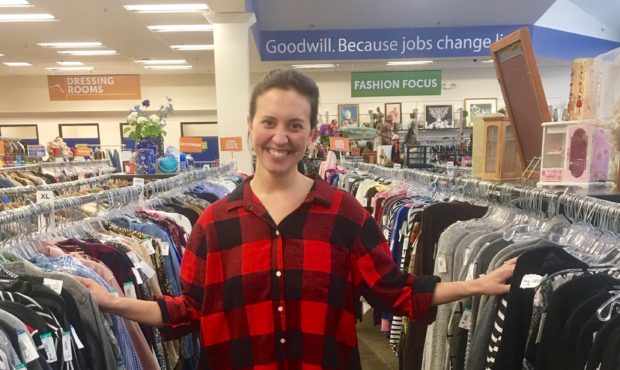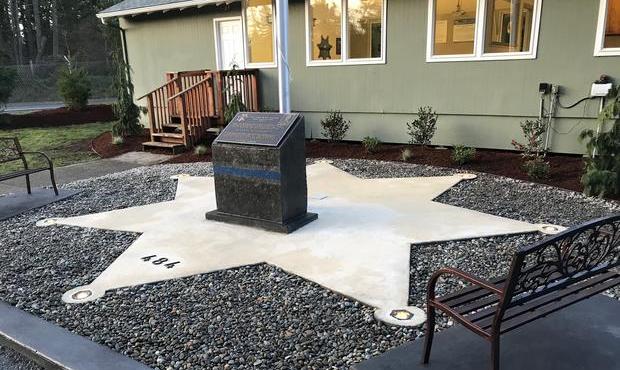Homeless kids: Big city problem, small town solutions
Dec 6, 2016, 2:26 PM | Updated: 2:45 pm

Small towns nestled in the Snoqualmie Valley are separated by several miles and none of them offer much in the way of social services. (Kim Shepard, KIRO Radio)
(Kim Shepard, KIRO Radio)
Seattle’s mayor has promised a $50 million investment to address the city’s homelessness crisis. While the problem isn’t limited to the big city, smaller communities don’t have the same resources to pull from. But, they do have something even more valuable — people with big hearts who are willing to get involved.
North Bend, Snoqualmie and Fall City are small towns nestled in the Snoqualmie Valley. They are each separated by several miles and none of them offer much in the way of social services. The local school district estimates they are working with about 60 homeless youth in the valley, although they say there are likely many more going unnoticed.
O’Neill: Mayor, Council deserve – a little – credit for Seattle homeless ideas
Kristen Zuray is among the folks looking out for those kids. She started “The Trail Youth” in Issaquah three years ago. They would walk the trails where homeless teens were known to hang out, offering coffee and donuts to gain their trust, then getting to know the kids to find out how they might be able to help. It didn’t take long for Kristen to realize the problem started even closer to home.
“The people that we were working with in Issaquah told us that they were getting their drugs from out here,” Zuray said. “Plus, we live out here.”
I joined Zuray and fellow volunteer Tanya Guinn on a recent walk down the Snoqualmie Valley Trail in North Bend. Our journey started near Two Rivers School, a small alternative high school. The students often hang out on the trail during their lunch break, smoking and debating whether or not they want to return to class.
Zuray and Guinn handed out a few donuts and introduced themselves. The kids were warm and welcoming. It was the first step toward understanding who might need help and finding other homeless youth in the area.
Then, we walked down the forest-lined gravel trail looking for signs of encampments. Zuray told me the story of a homeless young man in Issaquah who was a father-figure for his group. The man was standoffish at first. When they found out he’d been stabbed, they brought his brother and some of his friends to the hospital so they could be by his side.
“And from that day on we had somebody from the trail be with him in the hospital,” Zuray recalled. “That just broke down the barriers for him.”
While The Trail Youth go out in search of kids who might have issues with addiction, mental health or homelessness, there’s also an organized group effort to find the resources these kids will need and the places for them to go.
Several month ago, the community began a series of Forums on Homeless Youth held at the Sallal Grange. They’re trying to figure out solutions to the unique problems these kids face, like the fact that they’re too young to get food stamps or housing vouchers.
The State Department of Social and Health Services has programs for people under the age of 18, but many of them don’t want to become part of “the system.” Among their fears is that they might wind up in foster care. And, if they’re reported as a runaway they could be forced to go back home.
Not only do many of these kids deal with addiction and mental health issues themselves, but so do the adults they’re supposed to be able to rely on.
The local school resource officer was at one of the recent meetings. While she was there, she was talking on her cell phone with a 12-year-old in crisis.
“She’s young. She’s been raising herself. She has nowhere to go, no one to talk to, so she’s becoming suicidal,” Officer Kim Stonebraker said. “So, every night I’m talking to her until she goes to bed.”
Huge increase in Washington homeless numbers
This is really the epitome of small town determination. Nonprofit groups, local church members, concerned citizens, folks from the police department, and employees of the school district have all been coming together at these monthly meetings.
The local teen librarian, Maggie Wong, who works for the King County Library System, servicing North Bend, Snoqualmie and Fall City, has become an unlikely hero as one of the driving forces behind the events.
“While we’ve often been associated with books, at it’s core we’re associated with information,” Wong explained. “Part of that is that we have to really stay keyed in with the community that we serve.”
Wong is working to congregate information on services available in the valley and the individuals she can call. For a kid in crisis, a warm hand off to a person Wong trusts can make all the difference.
A hand off to someone like Harley Christensen, an outreach worker for “Friends of Youth,” a group that offers counseling for mental health and substance abuse in the Snoqualmie Valley. The group also operate shelters throughout King County and offer other services for 15 to 24 year olds.
“I’ve gone to elementary, middle and high school here. I’ve seen people struggle and had my own struggle in that time,” Christensen said. “I think everywhere is in need, but specifically in the Snoqualmie Valley there’s not a ton of resources out here.”
In addition to dealing with homelessness and the possibility of addiction and mental health problems, Christensen noted that young people are also worried about finishing high school. It’s not only an additional stress, but it means less time for them to find services or look for a job.
Christensen was in Snoqualmie on Saturday night for a benefit performance for Friends of Youth put on by his dad’s band, Ask Sophie. The event was hosted by the Black Dog Arts Cafe. Co-owner Cris Coffing has seen the teen homelessness epidemic increase through their weekly open mic night, which has been going on every Wednesday for 26 years.
“It is an epidemic out here, and heroin’s an epidemic. That’s our latest battle. There’s a lot of heroin kids out here,” Coffing said.
The cafe is a safe place people can go for a glass of water and a warm place to relax, Coffing says. Even more importantly, Coffing said the shop offer vulnerable teens a chance to connect.
“For example, I’ll have a 75-year-old guitarist who creates a mentor-disciple relationship with a 15-year-old youth,” Coffing said. “That’s what I like the most.”
That seems to be the secret sauce in the Valley. They don’t have big government money, but they do have big hearts and neighbors willing to help out in whatever way they can.
“I think one person can change a youth’s life,” Coffing said. “Someone they might meet in here or talk to or get some encouragement from. I guess I hold that hope in my heart.”












